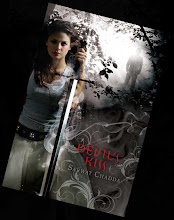Re-reading the Iliad recently and I was struck with a bit of an epiphany (okay, not a huge one, but enough to feel it worth sharing) and given the current state of affairs with a new president, a new F1 world champion and new Bond film out I thought I'd raise this.
What is it about heroes?
Given the Iliad was written around 800BC, the tale of Gilgamesh way before that, we've always wanted heroes, we always will.
But why?
The Iliad is perhaps the GREATEST story of ALL TIME, and concerns a few days at the end of the Trojan War. Now if you haven't read it, but think you know the story, you're wrong. The Iliad DOESN'T include the Tojan Horse, the death of Achilles, or the sacking of the city. It ends with the funeral of Hector, prince of Troy and first son of Priam.
Is Achilles the real hero of the tale? He's beautiful, the best of the best, an iconic figure who's rage drives the story. But...
He has no humanity. He is not us. He has passion, but it is all tumultuous humors, there is little that he FEELS except the urge for violence. Not to put too fine a point on it, he's a psychopath. Charming, appealing and deadly, he's like Hannibal Lector, a beautiful monster. Our eyes are always on him because of what he's capable of, in a way an erupting volcano is amazing to watch, but there's no way you want to get close.
Hector is the true hero of the tale, and that's why it ends with him, "Such was their burial of Hector, breaker of horses'".
I know that there were other tales lost in history, only the Iliad and the Odessey survive (and that raises the question WHY just those two?), so maybe some story lies lost that turns this on its head, but think about Homer and his audience. Think how in some ancient dark night around a campfire a king and his warriors listened to a blind old man recount the story. Did they identify with Achilles, the Greek superman? Did they imagine them in his armour, with his shield and long-shadowed spear? Or did they think of Hector, the man, who visits his baby son and wife, is full of fear and doubt, who finally faced with death, runs, who asks that he be honoured in death, a death he knows now is inevitable as he stands before the godlike son of Peleus?
Shakespeare picked this up in Troilus and Cressidia, we are left in no doubt regarding Hector's greatest.
I like to imagine that the Greek king shifted uncomfortably on his stone throne when he heard Homer. Had he a small son, who cried when he saw his father dressed for war in a horse-tail helm? Did he stand in battle, not imagining himself as Achilles, because no-one can, but as Hector, noble, brave, but a man open to doubt and fear. A man who'll do his duty, but one who loves, feels loss, knows that he is falible, but does it nevertheless.
I think the greatest of heroes are the ones who's humanity shines out. It is their capacity for sacrifice that marks them.














7 comments:
Geraldine McCaughrean was talking about this at an evening I went to recently. It's true that 2D superheroes hold our attention very briefly. I love the way Sharpe becomes incresingly worried about his mortality in the Cornwell books.
I agree with you, Sarwat and would add that other important ingredient about heroes - they have to change/develop/grow in some way through the story to give them real depth... even if that change takes some of the heroic gleam from them.
I've not read the Iliad but I'm guessing Achilles starts off as a raging, beautiful, superhuman warrior "type" and stays that way. Hector the hero, however, discovers his mortality, fear and shame(?) as the tale develops and so becomes more real and more identifiable (real word?) with.
Thanks, as ever, for your thoughts.
Gareth
I would class certain superheroes into the mythic mould, because of their relationship (interestingly) with Greek Gods.
So we have Batman/Hades and Superman/Apollo (perfectly picked up in the Dark Horse series AS Apollo).
What amkes a character immortal? Especially given the prejudices against the superhero genre and comics in general. Time and again there's been attempts to kill them off, but they come back, like all the best heroes do.
We're long past the point of accepting comics are literature. The rst of the world knows it, but Britain and the USA are still trapped in the pretensions of the written word over the visual 'word'.
Few things compare to the thrill of a Frank Miller panel, or the sublime lines of Bolland and the awesome chill of V for Vendetta (STILL the best work Moore ever did, and that includes Watchmen, something I feel totally overrated).
I know this must sound starnge coming form a writer, but lets face it, we're in the business of creating memorable characters, maybe/hope even immortal ones, and there are some classics in the comic field.
This poor spelling's becoming a bit of a joke. Hope my editors don't read this blog.
i agree about comics what I was pointing out was that in order to become more durable, they've become more vulnerable? Aren't the spelling problems more typos than anything else? :-)
I like to imagine my brain is moving too fast for my typing fingers to keep up. Did notice you spelt 'increasingly' wrong.
Have slightly ammended my thoughts on the hero thing, especially with Obama's election. HOPE. Another essential ingredient with heroes. There lies the rich tragedy, re: Oedipus. He comes to save the city, but is the very cause of its calamities.
Seriously hope this doesn't apply to the President Elect, obviously!
hee hee, that was a deliberate mistake! ;-)
Hmmm, hope is a good one.
Post a Comment